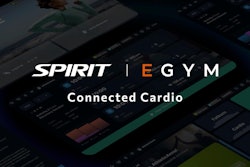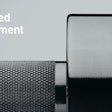SOURCE: Highmark Interactive
Highmark Interactive’s ‘EQ Brain Performance’ is now being used by sports organizations and medical professionals
Toronto, (Oct. 24, 2019) – Highmark Interactive, an award-winning health technology company, announced today the results from a recent study that shows how their FDA 510(k)-cleared Class II medical device, EQ Brain Performance (EQ), accurately measures deficits in balance that result from a concussion. Having revolutionized the approach to evaluating neurologic function, the data provided by Highmark's mobile game-based technology offers an objective, reliable and quantifiable way of differentiating between healthy individuals and those with poor balance that is often associated with concussion, therefore providing rehabilitation guidance on the path to recovery.
Given the limitations and inconsistencies of today’s most common concussion screening protocols, there is a need for more objective and specific methods to assist healthcare professionals in the detection and diagnosis of concussions. Unlike conventional baselines and subjective evaluations that rely solely on the comparison of current performance to a single point in the past, Highmark’s neurological functional assessment technology quickly delivers precise, objective and quantifiable data regarding balance, visual and cognitive performance. The technology allows individuals and their caregivers to evaluate their brain’s performance over time, thus representing the individual as a ‘movie’ and not just a static picture.
Highmark’s study found that functional balance tests using the EQ technology are a useful, precise and objective method of assessing underlying neurological health. The study demonstrated how EQ could be safely utilized in the concussed population and that it clearly and reliably differentiated between individuals with healthy balance and those with poor balance; often seen in concussion.
“Concussions are a significant international public health concern, yet the methods currently used for its detection are largely subjective. In addition, not all concussions are the same, yet patients usually lack a clear understanding of the severity of a concussion as well as the road to recovery. Objective balance assessment provides doctors and other healthcare professionals with a fast and objective tool for assessing concussions and other TBIs,” said Dr. Michael Kis, Neurosurgeon Trillium Health and Principle Investigator of the study. “This study demonstrates that digital balance tests, such as Highmark Interactive’s EQ, are capable of providing doctors with the data they need to quickly and precisely uncover abnormal balance in a concussed population.”
By combining balance measurement with cognitive and visual measures, EQ has the capacity to take advantage of advanced machine learning algorithms that will help doctors and rehabilitation team members manage concussions more effectively, determining appropriate treatment programs, and in determining when it is safe for concussion patients to return to normal activity after sustaining a concussion.
“Highmark’s EQ platform represents an entirely new approach to assess and track neurological function” said Dr. Sanjeev Sharma, Co-Founder and CEO of Highmark Interactive. “By fusing the powerful engagement that comes from gaming with our proprietary algorithms, EQ’s software provides the richest, most comprehensive understanding of an individual’s functional neurological performance”.
The Study
This is the first study to systematically examine the use of a gamified balance assessment technology to research differences in balance. Participants included people with no history of concussion and patients with a clinical diagnosis of concussion. Seventy (70) subjects were recruited from sports medicine clinics to take part in the study. All subjects performed five stances associated with the Balance Error Scoring System while using EQ technology. Among these subjects, 39 had concussion as clinically verified by an FRCPC Sports Medicine practitioner (according to medical diagnosis guidelines). 31 subjects had no history of concussion.
Healthcare professionals are increasingly adopting simple, user-friendly technology to assess aspects of neurological function, such as traumatic brain injury diagnosis, mental health, aging, and substance impairment. In addition, such technology is providing innovative means to monitor patient recovery from such conditions. Given that these mobile tests are simple and quick to administer, further investigations into the use of this technology in sports settings is planned. Future work will focus on the use of the technology for the purposes of diagnosis, and especially assist with return-to-play decisions following an athlete’s concussion diagnosis.































